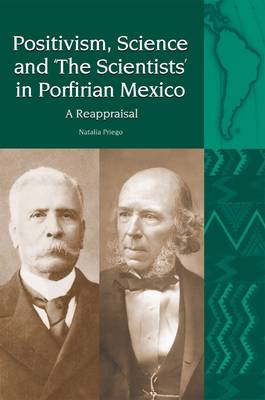
- Afhalen na 1 uur in een winkel met voorraad
- Gratis thuislevering in België vanaf € 30
- Ruim aanbod met 7 miljoen producten
- Afhalen na 1 uur in een winkel met voorraad
- Gratis thuislevering in België vanaf € 30
- Ruim aanbod met 7 miljoen producten
Zoeken
Positivism, Science and 'The Scientists' in Porfirian Mexico
A Reappraisal
Natalia (Department of Modern Languages and Cultures, University
€ 104,95
+ 209 punten
Omschrijving
This book breaks new ground in the historiography of Mexico during the dictatorship of Porfirio Diaz by subjecting to detailed analysis the traditional belief that the ideology of the intellectual/political elite known as 'the scientists' was grounded in the philosophical ideas of Herbert Spencer.
Specificaties
Betrokkenen
- Auteur(s):
- Uitgeverij:
Inhoud
- Aantal bladzijden:
- 272
- Reeks:
Eigenschappen
- Productcode (EAN):
- 9781781382561
- Verschijningsdatum:
- 29/01/2016
- Uitvoering:
- Hardcover
- Afmetingen:
- 163 mm x 243 mm
- Gewicht:
- 436 g

Alleen bij Standaard Boekhandel
+ 209 punten op je klantenkaart van Standaard Boekhandel
Beoordelingen
We publiceren alleen reviews die voldoen aan de voorwaarden voor reviews. Bekijk onze voorwaarden voor reviews.








